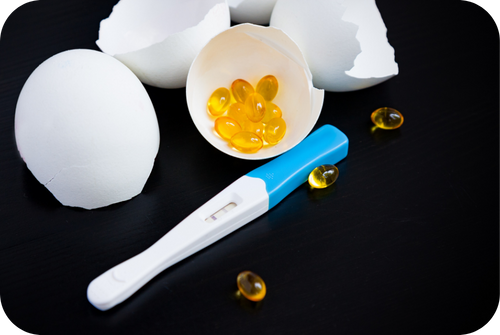IVF Treatment
At Eva IVF & Women’s Centre, we understand that struggling with infertility can be an emotional and challenging journey. If you’ve been trying to conceive without success, In Vitro Fertilization (IVF) may be the solution to help you achieve your dream of parenthood. This guide is specifically for individuals and couples considering IVF treatment. We’ll walk you through the entire IVF process, what to expect, success rates, and how to prepare for the best possible outcome.
What is IVF and Who Needs It?
In Vitro Fertilization (IVF) is an advanced fertility treatment where eggs are retrieved from the ovaries, fertilized with sperm in a laboratory, and then transferred back into the uterus to achieve pregnancy.
Who Should Consider IVF?
IVF is recommended for:
✔ Women with blocked or damaged fallopian tubes
✔ Couples with severe male infertility (low sperm count or motility)
✔ Women with endometriosis or ovarian disorders
✔ Couples with unexplained infertility after failed IUI cycles
✔ Women with low ovarian reserve (age-related infertility)
✔ Couples with genetic conditions requiring embryo screening (PGT)
If you’ve been trying to conceive for over 6-12 months without success, IVF could be the right path for you.
What Happens After IVF? The 2-Week Wait
14 days after embryo transfer, a blood pregnancy test (beta hCG) confirms pregnancy.
💡 What to Expect During the 2-Week Wait?
✔ Mild cramping, bloating, or breast tenderness (similar to PMS)
✔ Avoid heavy exercise, smoking, and alcohol
✔ Continue prescribed medications (progesterone, estrogen)
If the test is positive, follow-up ultrasounds confirm implantation and fetal heartbeat. If negative, we discuss the next steps (repeat cycle or frozen embryo transfer).

Success Rates of IVF – What Are Your Chances?

IVF success depends on age, egg quality, sperm health, and uterine condition.
📊 IVF Success Rates at Eva IVF:
- 50-60% for women under 35
- 35-50% for women aged 35-40
- 10-20% for women over 40 (may require donor eggs)
✔ Success increases with frozen embryo transfer (FET) and PGT screening.
Key Aspects of Mental Health & Wellness
Mental health and wellness refer to a person’s emotional, psychological, and social well-being. It affects how individuals think, feel, and behave in daily life, as well as how they handle stress, relate to others, and make decisions. Good mental health enables people to cope with challenges, maintain relationships, and function effectively in work and personal life.
Lorem ipsum dolor sit amet, consectetur adipiscing elit. Ut elit tellus, luctus nec ullamcorper mattis, pulvinar dapibus leo.
Emotional Well-being
The ability to manage emotions, such as stress, anxiety, sadness.
Cognitive Health
Maintaining clarity in thinking, decision making, and problem-solving.
Social Wellness
Building and maintaining positive the relationships with family, friends
Resilience & Coping Skills
The ability to adapt to challenges, setbacks, and life changes.
Mental health is a vital aspect of overall well-being
We think, feel, and interact with the world around us. It encompasses emotional, psychological, and social wellness, helping individuals cope with stress, build relationships, a make decisions. Prioritizing mental health involves self-care, mindfulness, an seeking support when needed, whether through therapy, counseling, or lifestyle changes. Just like physical health, maintaining mental well-being is essential
We provide counseling, therapy, stress management programs, psychiatric evaluations, medication management, mindfulness training, and wellness programs
We provide counseling, therapy, stress management programs, psychiatric evaluations, medication management, mindfulness training, and wellness programs
We provide counseling, therapy, stress management programs, psychiatric evaluations, medication management, mindfulness training, and wellness programs
We provide counseling, therapy, stress management programs, psychiatric evaluations, medication management, mindfulness training, and wellness programs
Common Questions About IVF
Is IVF painful?
No, egg retrieval is done under sedation, and embryo transfer is painless. Some discomfort from hormone injections is possible.
How long does IVF take?
One complete IVF cycle takes 4-6 weeks from ovarian stimulation to embryo transfer.
What are the risks of IVF?
IVF is safe, but mild risks include:
✔ Ovarian Hyperstimulation Syndrome (OHSS) – If too many eggs develop
✔ Multiple Pregnancy (Twins or Triplets) – If multiple embryos are transferred
Can I use frozen embryos in future cycles?
Yes! Frozen embryos offer high success rates and avoid repeated stimulation.
How to Prepare for IVF? – Pre-Treatment Practices
Before starting IVF treatment, taking care of your body and mind is crucial for success. Follow these expert-recommended pre-treatment guidelines to improve egg quality, sperm health, and overall fertility.
Why? A nutrient-rich diet supports healthy egg and sperm development.
✔ Eat protein-rich foods like eggs, fish, nuts, and legumes
✔ Increase leafy greens (spinach, kale) & antioxidants (berries, citrus fruits)
✔ Take prenatal vitamins (Folic Acid, Vitamin D, CoQ10, Omega-3)
✔ Limit processed foods, sugar, and trans fats
💡 Pro Tip: Start a fertility-friendly diet 3 months before IVF for the best results.
Why? Obesity (BMI > 30) or being underweight (BMI < 18) can affect ovulation, hormone levels, and implantation rates.
✔ Aim for a healthy BMI (18.5-25)
✔ Moderate exercise (walking, yoga, swimming) is best
✔ Avoid intense workouts, which may disrupt ovulation
💡 Did You Know? Losing even 5-10% of excess body weight can boost IVF success rates significantly!
✔ Smoking reduces egg & sperm quality and increases miscarriage risks
✔ Alcohol affects embryo development & implantation – Stop at least 3 months before IVF
✔ Limit caffeine to 1 cup/day (200mg max) – Too much caffeine lowers pregnancy chances
Why? High-stress levels affect ovulation, sperm quality, and embryo implantation.
✔ Try meditation, yoga, or acupuncture
✔ Sleep 7-8 hours daily for hormone balance
✔ Surround yourself with positive support – IVF is a journey, not a race
💡 Pro Tip: Studies show that stress reduction techniques improve IVF success rates by up to 20%!
✔ Take progesterone supplements (if prescribed) to thicken the uterine lining
✔ Stay hydrated and eat foods rich in iron & vitamin E (nuts, seeds, avocado)
✔ Avoid exposure to toxins, chemicals, or excessive heat (hot tubs, saunas)
💡 Did You Know? A well-prepared uterus increases embryo implantation success significantly!
Before IVF, doctors recommend:
✔ Blood tests (AMH, FSH, LH, Prolactin, Thyroid)
✔ Ultrasound scan (to check ovarian reserve & uterus health)
✔ Semen analysis (to assess sperm quality)
✔ Hysteroscopy/Laparoscopy (if needed) to check for fibroids, cysts, or endometriosis

